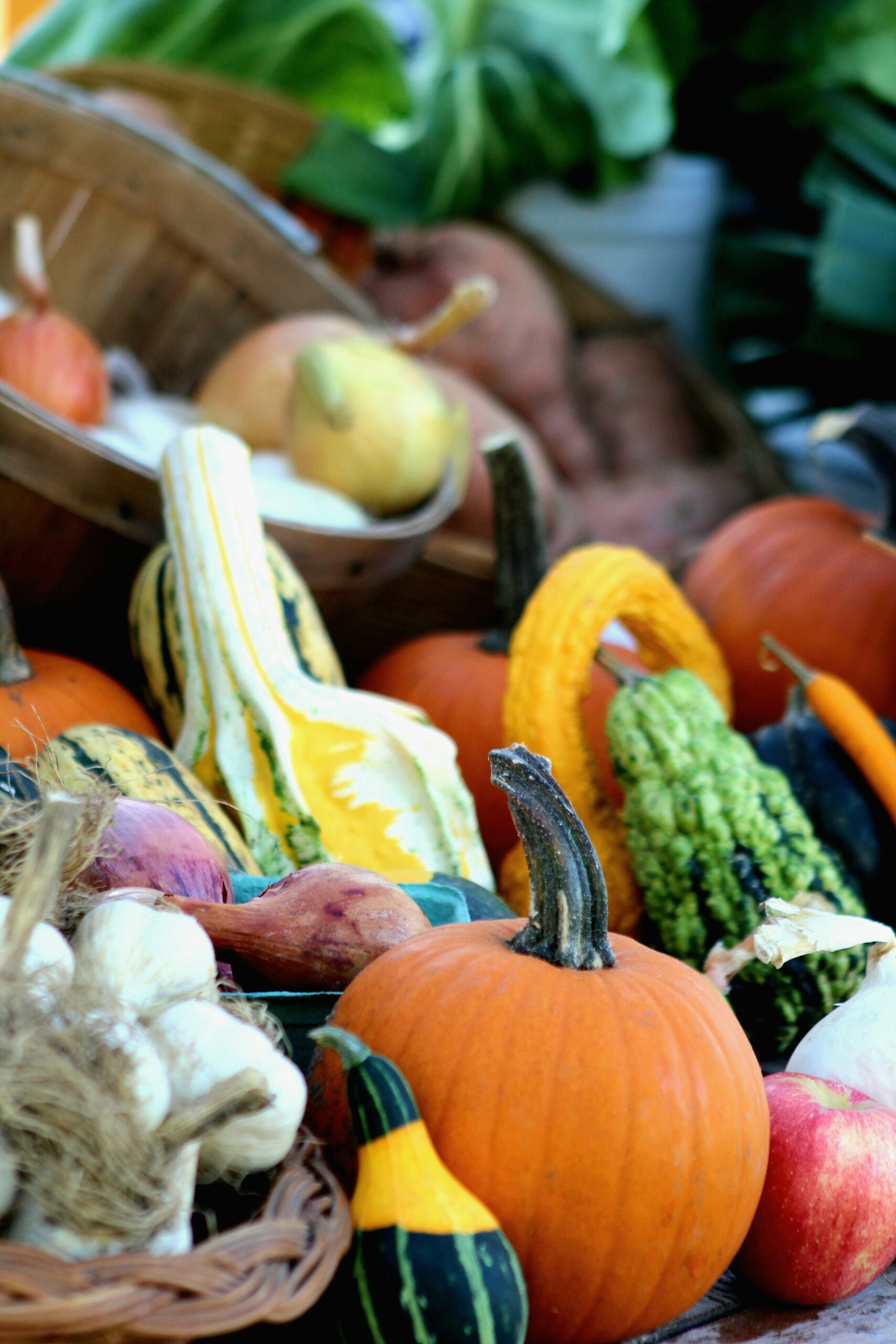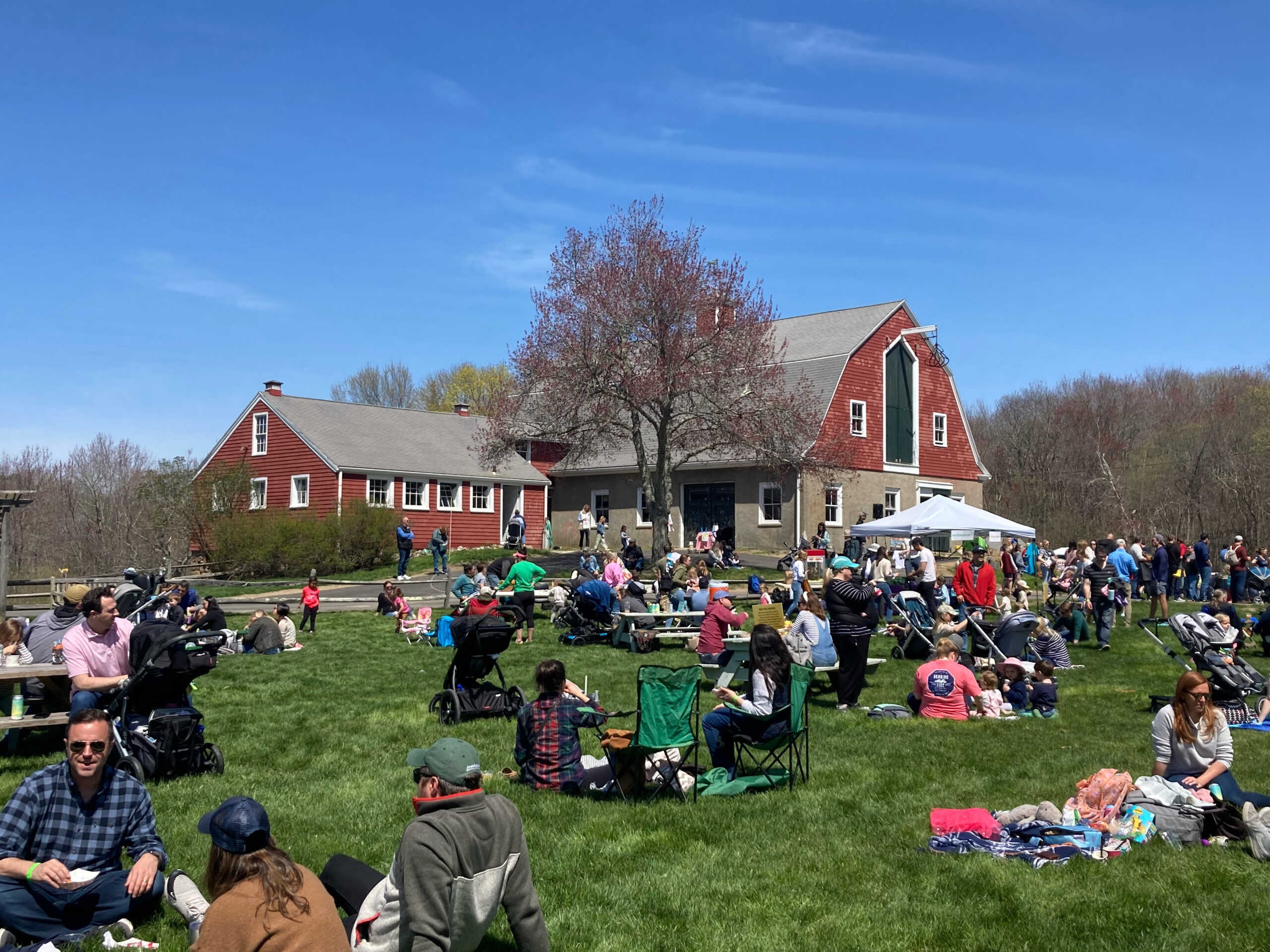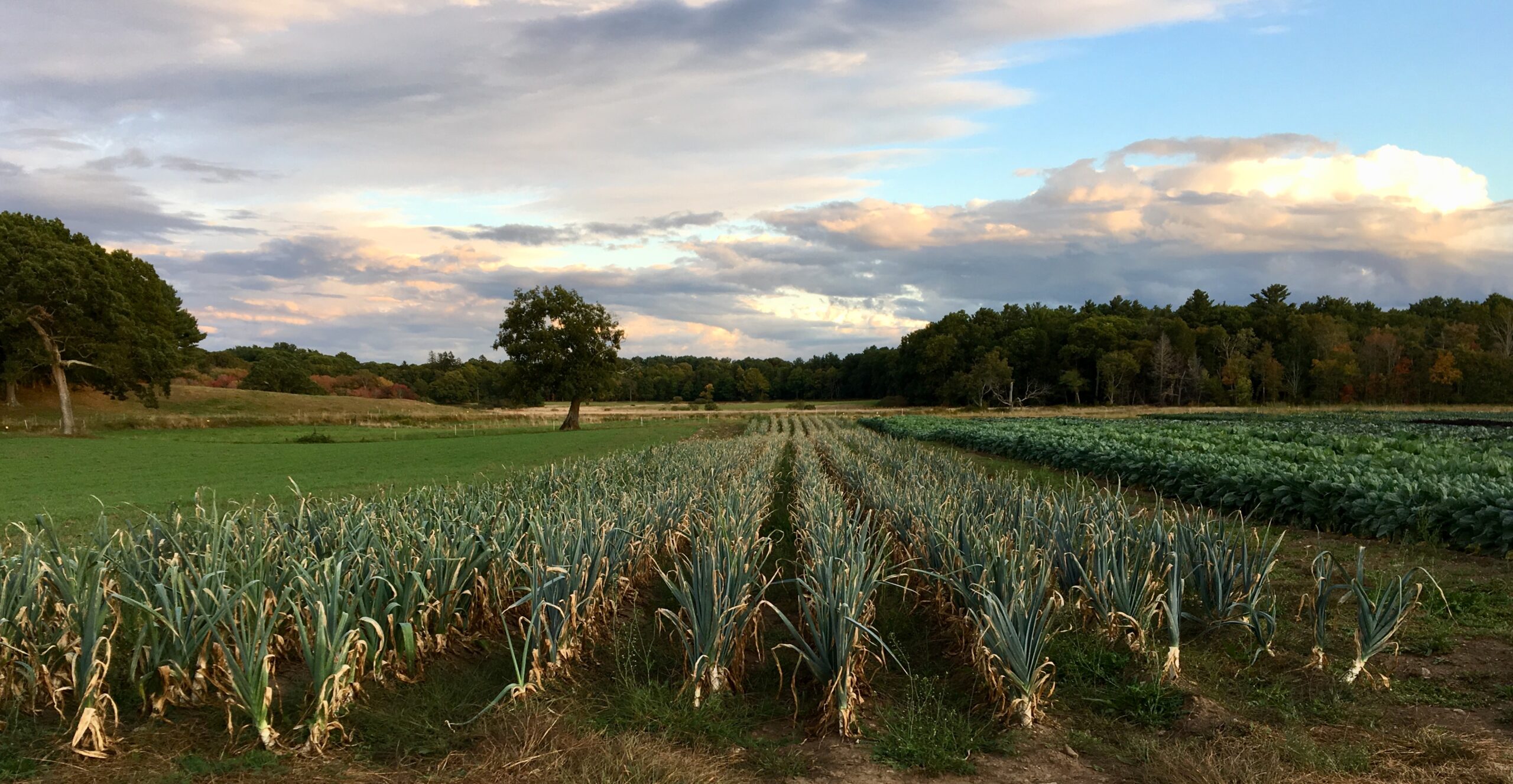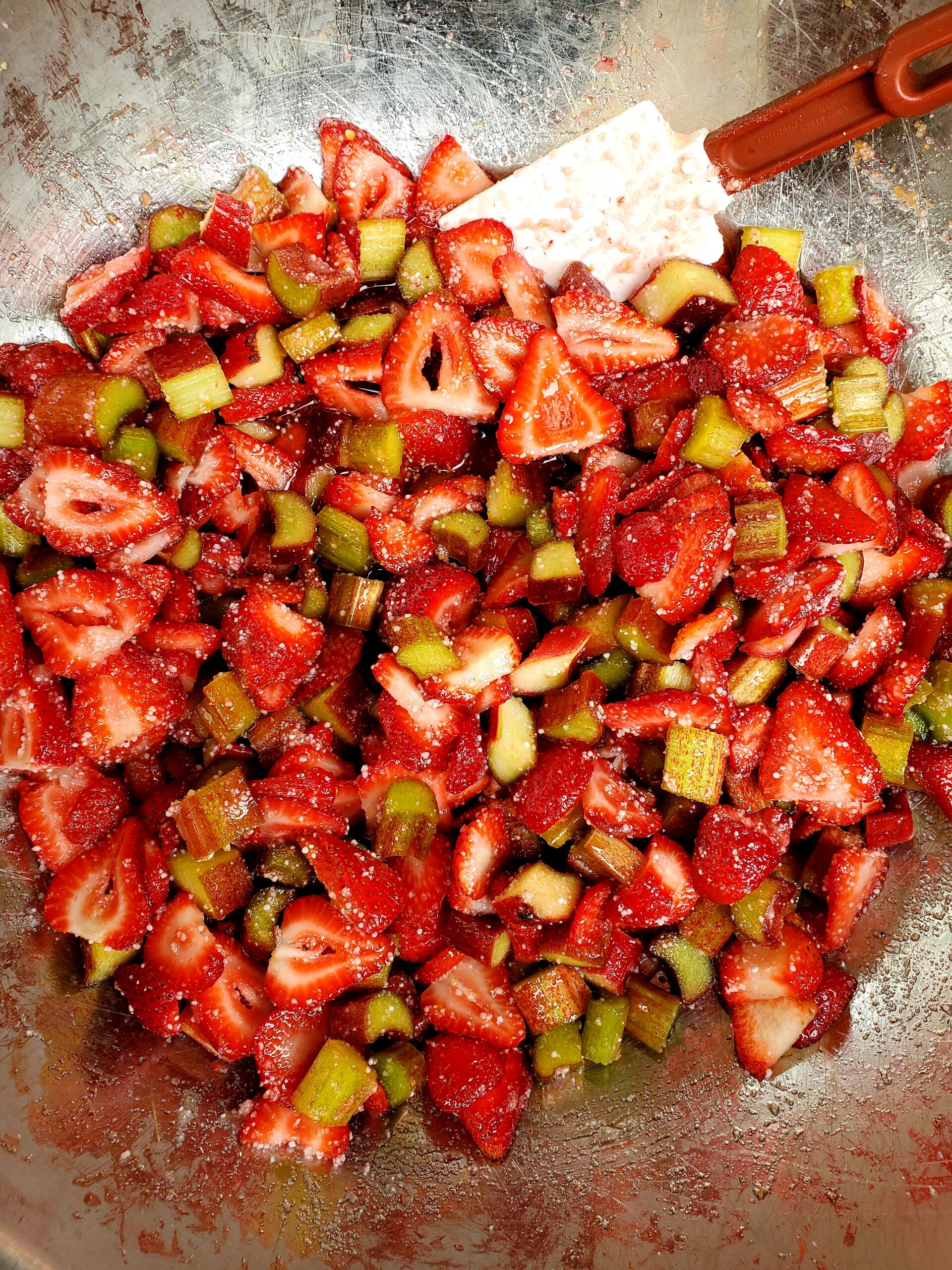Molly is no longer part of the Trustees farming team. Join the Farms and Food Facebook group or sign up for News to stay up-to-date with everything happening across all our farms.
Agriculture Logistics Coordinator for The Trustees
Molly Callahan
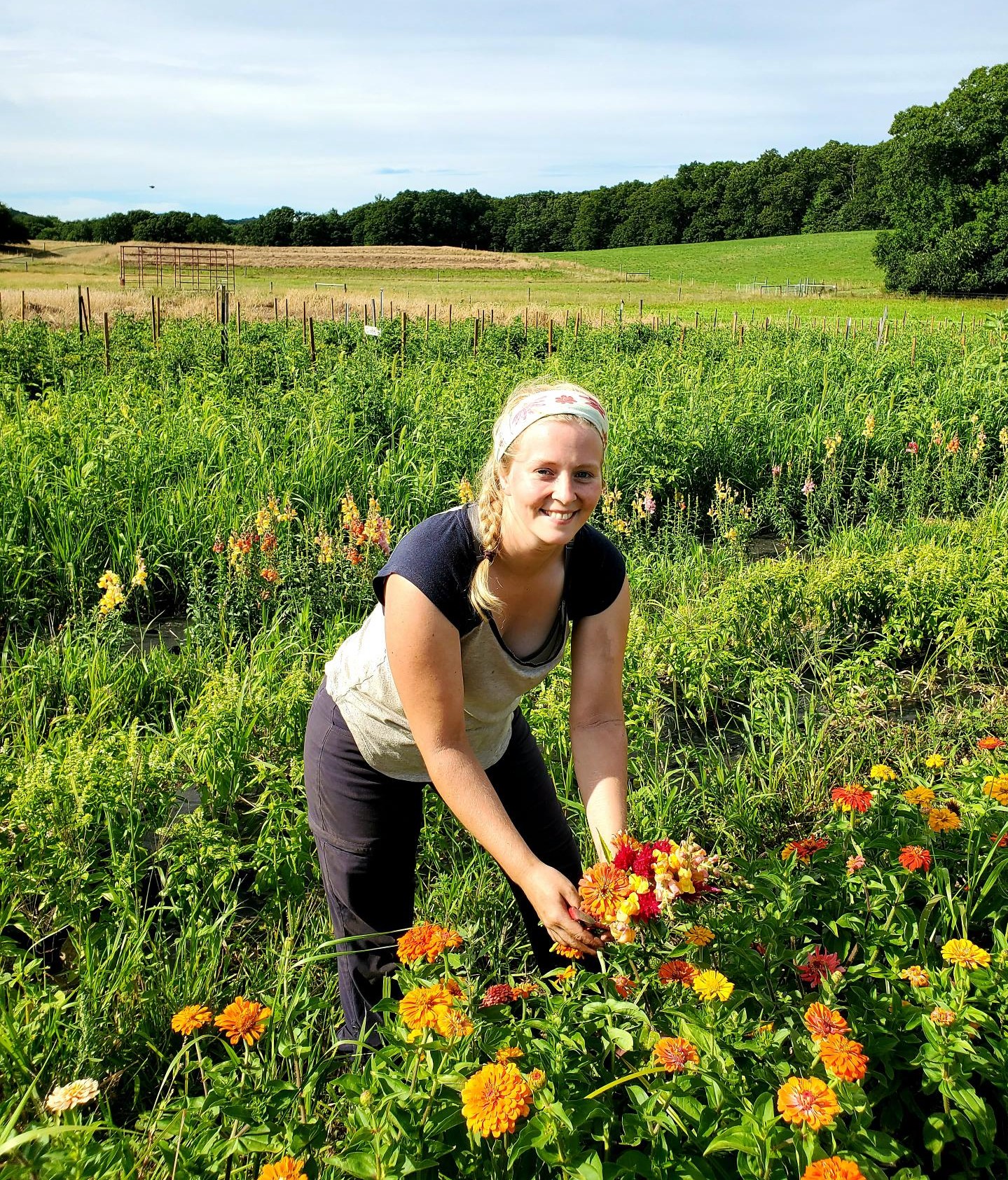
How did you get into farming?
I really started just by volunteering in high school. That made me really curious about how we grow our food and it stayed in the back of my mind as more of a hobby. In college, I was actually a music and theater major, but I ended up starting a farmer’s market at my school with some friends. I really appreciated how people got closer to their food with something as simple as a farmer’s market and personally loved talking to the people who were growing or making all this food. It inspired me to do the actual work. So, I applied to work at a farm in my hometown and did that the summers in between college, and once I graduated, took it up full-time for a year. After that, I ended up wanting to take a break and did something else for a while, but returned to it when I came to The Trustees.
How were you inspired to start the farmer’s market at school?
Honestly, I had a couple friends who were very cool and wanted to do it and I said, “yeah, let’s do it!” The Lehigh Valley, in general, has quite a lot of farmers, so it was a really nice way to support them. And we found out there was this big farmer’s market down the road that really didn’t support very many local farmers. That drove us crazy, so we were like, “we’ll compete with them. Let’s make our own farmer’s market full of local farmers.” That was really what drove us to it. We were also part of the environmental team, the activist group on campus, so we did it through that.
What kind of farming were you doing after school?
I was working at an amazing farm called Barrett’s Mill Farm, in my home town of Concord, Mass, as basically their CSA room manager and part of their field crew. I would help all of the shareholders come in and pick up their vegetables and assist in managing that space, and then spent a few days each week out in the field as well. I had a really good sense of the stories to share with shareholders, what crops to look forward to each week, what were the challenges we were facing at that moment, and actually got to share that information with the shareholders.
Just prior to joining The Trustees, where were you working?
I was a campus organizer and activist/lobbyist. I worked for MASSPIRG Students and I was mostly focusing on helping young people vote in the 2020 election and also raising support for a couple of really key environmental bills that were working their way through the legislature over the last few years. I really loved the work and find it so incredibly important, but I had the realization at some point that I was constantly thinking about the seasons and thinking about what was growing and missing being out in the field.
When it comes to farming, what are you most passionate about?
It may be silly to say, but eating what I grow. I mean, for me, I fell in love with food first and then I fell in love with farming. I think it’s such a powerful thing to be able to understand how your food is grown and help your food grow and then be able to enjoy it. I think there’s real power in a good family meal or having a meal with friends, and I love that farming is the start of all of that. That’s one of the biggest things for me, but then the other side of that is the impact, the positive impact, that farming can have, not just on people, but also on our earth and on our soil. That’s something I’ve been really excited to start digging into more with The Trustees, in our agroecology work and our soil health assessments.
What is your area of expertise?
I think I’m still figuring it out! I am already learning more about things like no-till and regenerative practices and I could see myself specializing in that. I also have a real soft spot for connecting back to what the land has been used for in the past and especially how indigenous peoples used this land. I do have visions of myself specializing in that when I go forward in some way.
In terms of going forward in your present role, you’re currently wearing a number of different hats, what do you see yourself focusing on?
The role didn’t exist before I came on board, so I’ve kind of been designing and tweaking it as I go. It’s morphing and changing, but I kind of see this role and some other roles on the management side as kind of being the metaphorical grout in the tiles of our team. Filling in gaps. Smoothing things over. Farming is constantly evolving, so it’s great to have someone on the team who can fill in, in various spaces as needed. Beyond that, I do really hope to help our team expand and ground ourselves in some of our values, especially in things like food access and enriching the experience for our staff and for our visitors as much as possible. That’s really the heart of what I see in this role, because the logistics is all about making everything run smoother and go better. That’s really what I hope to continue doing going forward.
What’s the most challenging and exciting part of that?
I think the sheer size of The Trustees is incredibly challenging and equally exciting, there’s so much opportunity for collaboration across teams. It’s really rewarding when you get to work with people who have a specialty in conservation or historical preservation of artwork or a myriad of other things happening in this organization, and find ways that we can connect all of these very different bodies of work. I think that’s so exciting and rare. Another thing I’m really excited about is this work we’re doing in agroecology and soil health. As an organization, we’re set up in a very unique way that allows us to take more risks and use our land to learn a little bit more about how to best take care of it, which is something that not all farm properties can do. I think it’s really powerful that we are taking this on as a priority, understanding our land better and how to actually take these practices from a sustainable platform and make them regenerative and ecologically balanced.
